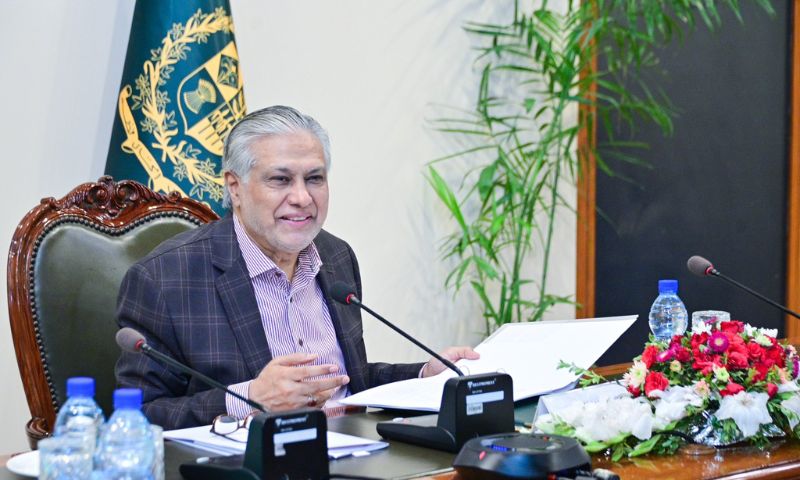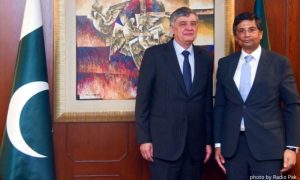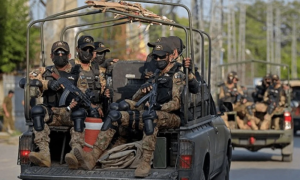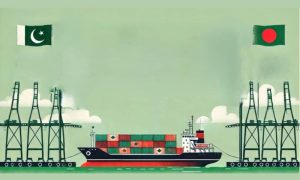ISLAMABAD: Pakistan’s Deputy Prime Minister and Foreign Minister Ishaq Dar emphasized Pakistan’s commitment to maintaining peaceful, cooperative, and neighbourly relations with all countries, despite facing challenges in some instances.
Speaking at the 51st Foundation Day of the Institute of Strategic Studies Islamabad (ISSI), he stressed the importance of dialogue, avoidance of bloc politics, and adherence to the UN Charter.
Dar highlighted Pakistan’s focus on economic development and regional peace, particularly with Afghanistan and India, advocating for stability in South Asia.
He underscored Pakistan’s strong strategic partnership with China and its aspirations for deeper ties with neighboring and major powers, emphasizing a commitment to multilateralism and regional connectivity through geo-economic initiatives.
Despite ongoing challenges, Dar reaffirmed Pakistan’s steadfastness and stressed the significance of communication, dialogue, and negotiations to mitigate risks and foster collaboration respecting all nations’ interests.
He reiterated Pakistan’s opposition to bloc politics, advocating cooperation over confrontation and adherence to international law. Dar acknowledged global transformations noted by leaders like Xi Jinping and Olaf Scholz, signaling a shift towards a multipolar world order amidst traditional and emerging security threats.
Addressing Afghanistan, Dar emphasized Pakistan’s support for a peaceful, stable, and prosperous Afghanistan, highlighting mutual benefits for regional prosperity. He underscored Pakistan’s efforts since the Taliban’s takeover in 2021 to prevent a humanitarian crisis and urged Afghan authorities to prevent terrorism from its soil.
Regarding India, Dar expressed Pakistan’s stance on the IIOJK dispute, advocating for mutual respect, sovereign equality, and peaceful resolution, while rejecting unilateral actions and hegemonic attempts. He called for strategic stability in South Asia and warned against provocative military actions from the Indian government.
“We will maintain strategic stability in South Asia and respond decisively to any ill-considered military actions by the Hindutva-driven government in New Delhi,” he added.
Regarding the new term of the BJP-led NDA government in India, he called for reflection on India-Pakistan relations and regional issues.
Reflecting on regional dynamics, Dar emphasized Pakistan’s strategic partnership with China through CPEC, describing it as transformative for Pakistan’s economy and regional prosperity. He noted recent diplomatic exchanges reaffirming the strategic importance of Pak-China relations and CPEC.
Dar also highlighted Pakistan’s pursuit of enhanced partnerships with Iran, Gulf nations, Turkiye, Central Asian states, and Azerbaijan, focusing on trade, investment, and connectivity initiatives through the Special Investment Facilitation Council (SIFC).
He stressed the importance of maintaining stable relations with the United States and expanding ties with Russia, the EU, Japan, and ASEAN for economic security amid global geopolitics.
Dar underscored Pakistan’s ‘pivot to geo-economics,’ leveraging its strategic location for development partnerships with global actors.
He mentioned Pakistan’s upcoming UN Security Council membership and ISSI’s contributions to enhancing international collaboration through numerous events and publications.


























